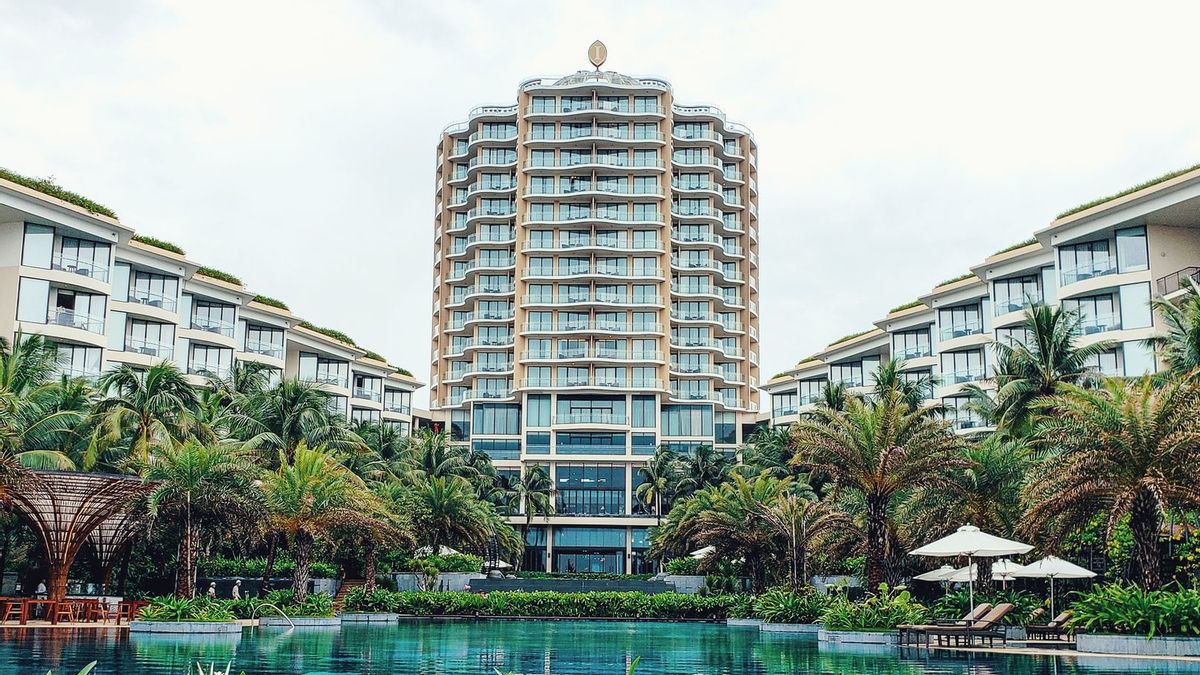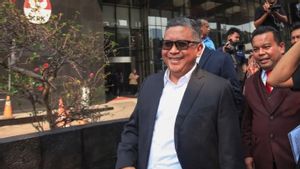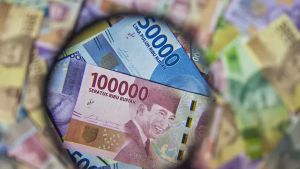JAKARTA - The tourism and hospitality industry is a sector that is suffering the major impact of the COVID-19 pandemic, where restrictions on activities ranging from PSBB to PPKM have caused the occupancy or occupancy rate of hotel rooms to drop. In fact, touching single digits.
Secretary General of the Association of Indonesian Hotels and Restaurants (PHRI), Maulana Yusran, said the various policies issued by the government are very burdensome for businesses in the hotel industry sector. However, he did not deny that restrictions were needed to prevent the spread of a massive virus.
Even so, he said, the government's restriction policy was not running optimally. Positive cases of COVID-19 in the country continue to increase, while the economy is under pressure.
"Because these policies, everything restrain their movement. On the other hand, hotels and restaurants really need movement. In addition to this limitation of hours also affects consumer traffic to move," he said, when contacted by VOI, Thursday, February 4.
Furthermore, he said, the level of room occupancy was increasingly decreased by the travel policy implemented by the government. He said that the requirement for a rapid antigen test validity period of 2 x 24 hours makes people consider traveling because there are additional costs that must be incurred.
"Not to mention the problem of testing to use the aircraft, which is now only given a time limit of 2 days," he said.
The hotel went out of business and was sold
Yusran said, the COVID-19 pandemic which has lasted 12 months has made the hotel industry unable to survive. Today, the industry is on the brink of bankruptcy. In fact, some have gone out of business. Some decided to sell their hotel.
Dozens of hotels and restaurants in Yogyakarta have officially closed because they are unable to withstand the onslaught of operating costs every month. In total, 50 hotels and restaurants have closed during the implementation of PPKM volumes I and II.
Meanwhile in Jakarta, the phenomenon of selling hotels through the marketplace has emerged. Sales of hotels in Jakarta during the COVID-19 pandemic were carried out as a solution to avoiding deeper losses. The reason is, hotel operating costs and credit payments are still running, while there is no income.

"When asked why they are selling, is it because of pressure? So this is how the hotel and restaurant have entered the 12th month, yes, they can't get up. Never mind talking to get up, it's hard to survive," he said.
The hotels for sale include Le Meridien Hotel on Jenderal Sudirman Street, Central Jakarta, sold for IDR 2.7 trillion by the Best Properties Indonesia account at OLX. Advertising for the sale of Le Meridien Hotel is also available in several other marketplaces.
Then, the Ibis Budget Jakarta Hotel, Tanah Abang, Central Jakarta, was sold for IDR 85 billion. The Ibis Budget Jakarta hotel was sold by the Aldila Aspan account on February 1, 2021.
Occupancy dropped to a single digit touch
Yusran said that the negative impact of the pandemic and restrictions on community activities was not only felt by hotels on the island of Java but also throughout Indonesia. Plus, it's low season now.
[/ read_more]
"This is what makes the business actors breathless, because this is not 2 or 3 months and this has entered the 12th month," he said.
He said, various hotels in all regions had decreased room occupancy. According to him, the government and the public must know that the conditions experienced by the hotel sector are not easy.
"In that area the occupancy has dropped drastically again. Now it has dropped to the single digit again by 10 percent and below. It has started in various regions, in Sumatra, the island of Java. There have been no activities," he explained.
In fact, said Yusran, the hotel industry will experience the worst conditions if restrictions on community activities are still imposed. This is because this sector will enter the same conditions when the pandemic first appeared in the country.
"This will happen in the same way as in March and April last year. But in March and April last year they still had cash rizer, they still had money to survive. If now they have no money plus fasting (there are restrictions) again," he explained.
The drastic drop in occupancy rates and activities in hotels has made hotels need to streamline their employees. If this condition does not get serious attention from the government, then of course mass layoffs are inevitable.
Incentives must continue
PHRI, said Yusran, asked the government to continue a number of incentives for the tourism sector, especially hotels during the Java-Bali Community Activity Restrictions (PPKM) Implementation on January 26 to February 8, 2021.
Yusran said the incentive that needs to be continued is the provision of funds for the tourism sector as implemented in 2020. In this policy, the government provides funds totaling IDR 3.3 trillion to entrepreneurs in 10 priority tourism destinations and 5 super priority destinations.
However, he said, there is one note on granting incentives. According to him, the central government should be able to think about this good policy to get support from the local government.
This is done by temporarily removing or reducing the obligation to pay Land and Building Tax (PBB) for affected hotels and restaurants. That way, the impact of the incentive can really be felt.
"If you are granted with incentive, but still pay the PBB Tax, it's the same. In the local government, the policy sets limitation but does not help entrepreneurs, the local tax is still being withdrawn, this is the main obstacle. How do you want to pay PBB Tax, when there is no income for 12 months," he said.
In addition to tourism grants, Maulana revealed the incentives that also need to be continued to provide support for entrepreneurs in the tourism sector during the Java-Bali PSBB are relaxation of PLN electricity rates, restructuring bank loans, and assistance for workers in this sector.
[/ read_more]
The English, Chinese, Japanese, Arabic, and French versions are automatically generated by the AI. So there may still be inaccuracies in translating, please always see Indonesian as our main language. (system supported by DigitalSiber.id)









